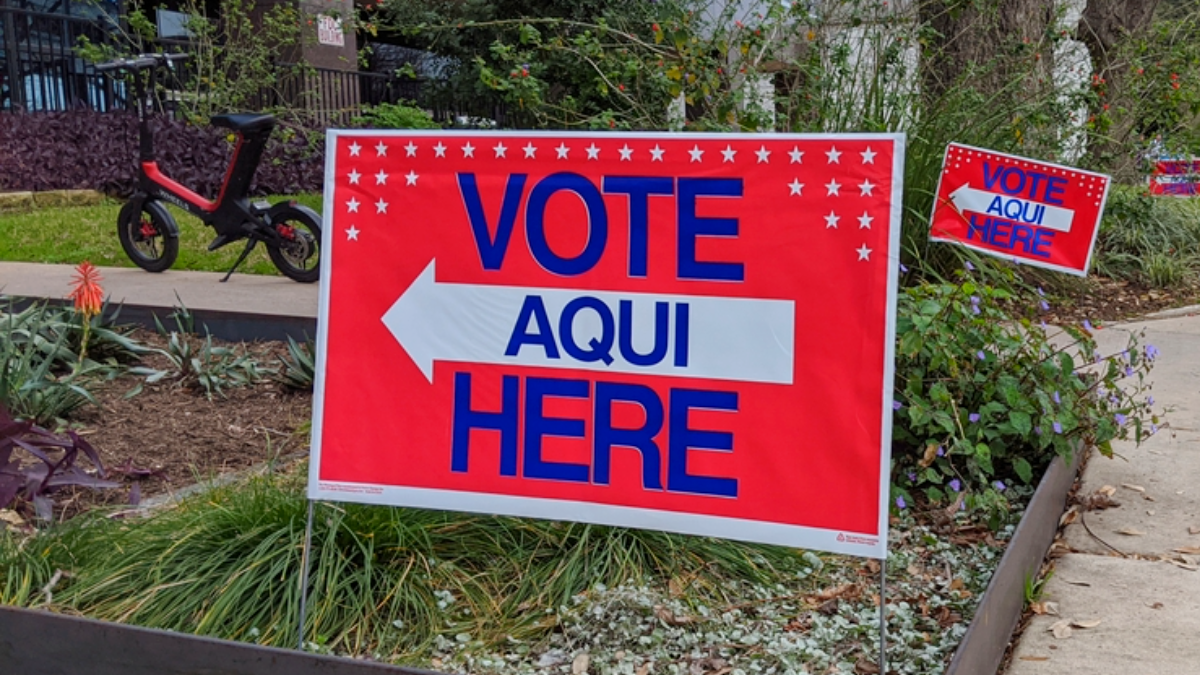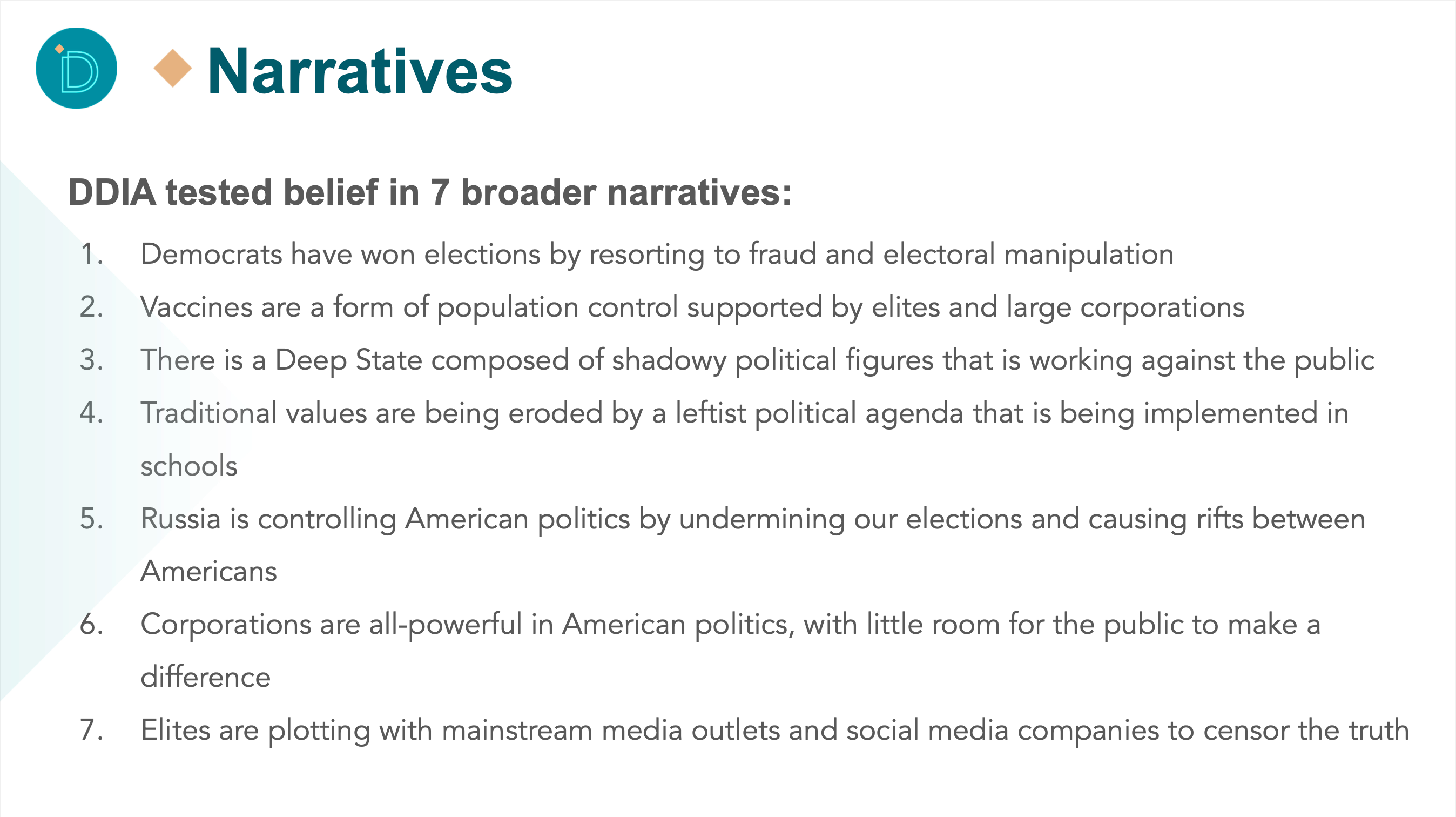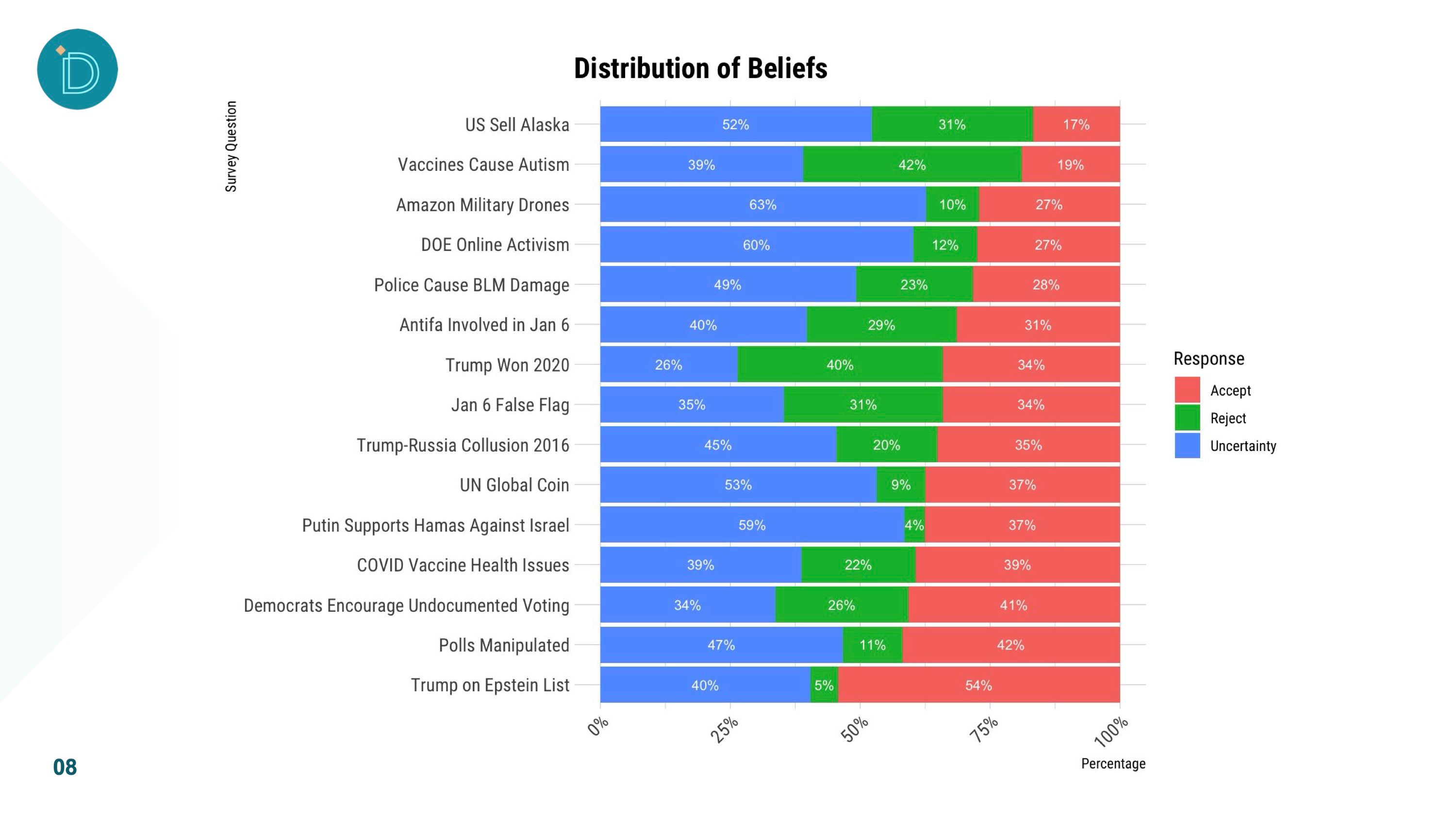Poll Sheds Light on Views of US Latinos on Disinformation, Distrust, and Democracy
Nathaly Cisneros / Jul 24, 2024Nathaly Cisneros is a Master's candidate at the Craig Newmark Graduate School of Journalism at the City University of New York (CUNY) and a reporting intern at Tech Policy Press.

Shutterstock
Latino voters are a key target when it comes to misinformation shared online. That’s according to polling from The Digital Democracy Institute of the Americas (DDIA), a nonprofit organization that provides Latinos with fact-checked information to guide their understanding of news and politics. Latinos in the US deserve to feel secure with the information they come across and should be able to participate in democracy free of fear and repression.
The new poll conducted by the DDIA sheds light on the familiarity and belief in misinformation among US Latinos, their confidence in election stakeholders, and their feelings about artificial intelligence (AI). Between March 11 and April 26, 2024, 3,000 Latino adults in the United States were surveyed as part of a nationally representative poll fielded by DDIA in partnership with YouGov. The survey was available in both English and Spanish. DDIA tested 7 conspiratorial narratives and 15 false claims, of which 62% of the 3,000 Latinos in the sample either rejected or expressed skepticism.
Yamil Velez, research consultant at DDIA said, “The goal of this [survey] was to see how durable some of these false claims were in terms of Latinos believing them and to assess how they stacked up against placebo claims, claims that were made up by us.”
Velez also mentioned that a lot of respondents agree with whatever they’re presented with and that the placebo claims were used “as a benchmark to assess against a variety of actual real claims over floating around the line.”
Electoral and Social Trust
There are huge partisan gaps in who Latino Democrats and Latino Republicans trust regarding elections and democracy. The only stakeholders trusted by both parties were scientists and their fellow neighbors of the same party, albeit to different degrees. Latino Democrats trust journalists, fact-checkers, and President Biden, but they don’t trust the Supreme Court, social media, Fox News, and other Republicans. Latino Republicans, on the other hand, trust the Supreme Court, religious leaders, and other Republicans, while they least trust CNN, activists, journalists, Biden, MSNBC, and other media organizations, and lean towards distrusting tech companies.
Latinos and Misinformation
Latinos often see a lot of misinformation online. Most demonstrate resilience: 62% of Latinos either reject outright false content and misleading narratives "or were not sure if what they saw was true or false," indicating a healthy skepticism but also a general distrust of online content.
“Latinos are exposed to a lot of misinformation online, and most remain skeptical. That said, misinformation about elites plotting to hide the truth from us and claims related to election fraud are being seen and believed by more and more Latinos,” said Roberta Braga, Founder and Executive Director of DDIA.
Latinos with high political interest, more education, and older age tended to be better at distinguishing true from false headlines, but older Latinos were also more likely to believe misinformation circulating online. “This is because we actually find that older Latinos tend to be a little more confident,” said Braga.
“Although when you present people with the same exact headlines, older Latinos do better at identifying true and false headlines when it comes to actual false things that are floating around online.”
Below are the narratives and claims presented to the sample:

Source: DDIA
DDIA tested 15 false claims to measure beliefs among the sample. These false beliefs included:
- Trump won the 2020 election
- Antifa was responsible for the January 6th insurrection
- January 6 was a false flag operation orchestrated by the U.S. federal government and law enforcement
- Democrats are failing to secure the U.S. southern border in order to allow undocumented immigrants to vote for them in the U.S. elections.
- Trump worked with Russians to steal the presidency in 2016
- Police, not protestors, were responsible for damage to buildings during the Black Lives Matter protests of 2020.
- Donald Trump was named on the “Epstein List” featuring famous individuals who travel with known convicted sex offender Jeffrey Epstein.
- Putin warned the U.S. to stay away from the “Israel-Hamas” war
- Giving kids vaccines can cause autism
- COVID-19 vaccines lead to more serious health issues like myocarditis and infertility that would otherwise not be observed among those who catch COVID-19
- Polls are being manipulated to distort public opinion
- Amazon delivery drones will be supplied by the U.S. military
- The U.S. government plans to sell Alaska back to Russia to pay off the national debt.
- The United Nations has proposed the adoption of Glocal Coin, a digital currency that will unify all existing currencies.
- The U.S. Department of Education is planning to make an online activism course mandatory for students nationwide.
The most widely rejected claims were that Trump won the election in 2020 and that vaccines cause autism.

Source: DDIA
Latinos and AI
Only 15% of Latinos surveyed were regularly using the most popular generative AI tool, ChatGPT. Opinions about artificial intelligence have yet to harden– 47% of the sample felt neither positive nor negative about AI’s impact on society, while the remaining responses were equally split with 27% positive and 27% negative. “Among the people who actually use AI there were higher levels of positive feelings,” said Braga. “The people who are using the tools understand their benefits and they feel better about it, especially for scientific discovery and productivity.”
Only 28% of the sample thought AI would be a game changer in the 2024 elections, with many seeing it playing a minor or marginal role. However, 66% thought AI technologies could take jobs away from ordinary people and are worried about AI’s impact on society and labor.
Despite high levels of distrust in the electoral process and election officials among some Latino subgroups, there is not much movement in terms of whether these same groups feel like they will sit out the 2024 election. Some Latinos choose to participate despite beliefs of rigged elections or untrustworthy officials, with other motivations potentially at play. More conspiratorial and conservative Latinos are less likely to trust the process but no less likely to express an intention to turn out to vote, showing there is not necessarily a one-to-one connection between trust and turnout.
Overall, this poll allowed the DDIA to get a sense of the pre-existing beliefs that make it easier for people to believe specific claims. Braga says, “If you understand the narratives that people believe, then this is going to be a really good predictor of whether they end up believing specific things that are emerging in the political environment”.
Authors
